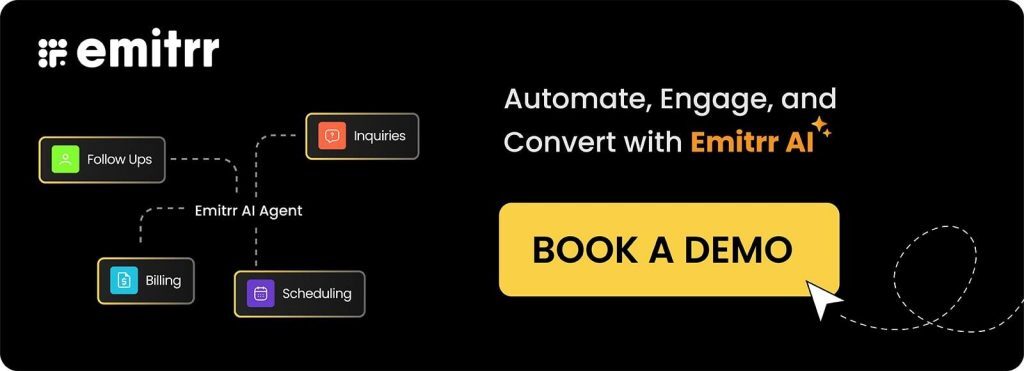Patient Release Form
What is a patient release form?
A patient release form template is a legal document that authorizes the disclosure of a patient’s medical records to a third party. It ensures privacy and compliance with federal laws while facilitating seamless care transitions. Digital tools like patient appointment reminders simplify the release and sharing process across healthcare systems.
Purpose of the patient release form
The purpose of a digital patient release form PDF template is to enable healthcare providers to share protected health information (PHI) securely, ensuring compliance with privacy regulations and patient consent laws. This form is crucial for coordinated care, billing processes, insurance claims, and referrals to other specialists.
Digitally integrated solutions such as patient texting allow quick, HIPAA-secure communication for authorization confirmations. By integrating with patient intake systems, providers can streamline record releases while maintaining transparency with patients.
Key Components of the Patient Release Form
Patient release workflows tie into broader engagement efforts like patient feedback, ensuring that healthcare communication remains transparent and efficient.
- Patient Information – Includes full name, contact details, and date of birth.
- Recipient Details – Lists the person or organization authorized to receive the records.
- Purpose of Release – States the reason for sharing medical information.
- Specific Information To Be Released – Defines which records or data will be disclosed.
- Expiration Date – Specifies the timeframe for which the release is valid.
- Patient Signature – Confirms consent and authenticity of the authorization.
- Witness or Representative Signature – Adds legal validation to the form.
- Date of Authorization – Records the date when permission was granted.
- Revocation Clause – Allows patients to withdraw consent at any time.
- Provider Information – Identifies the releasing healthcare institution or physician.
Digitize Your Medical Forms with Emitrr
Emitrr simplifies medical record sharing through automation and digitization, helping practices replace manual processes with smart digital workflows. By downloading this free printable patient release form PDF healthcare facilities can ensure data accuracy and compliance.
Emitrr’s tools enhance patient reviews, allowing organizations to measure satisfaction and improve service quality. Features like AI for patient care automate follow-ups and record-sharing requests, reducing administrative strain.
The platform also supports efficient scheduling through patient self-scheduling, ensuring a seamless digital interaction from form completion to care delivery. Each release form submission becomes part of a cohesive workflow designed to improve compliance, operational efficiency, and patient trust, all while enhancing care coordination across systems.
FAQs
The purpose of a digital patient release form PDF template is to authorize the release of medical information to another provider, insurer, or entity. It protects patient privacy and ensures compliance with HIPAA regulations. Additionally, this form facilitates smoother care transitions by enabling all involved providers to access critical health information.
A printable patient release form PDF must include the patient’s name, date of birth, recipient information, reason for disclosure, and a signature. It should also outline the expiration date and any limitations on the data shared. Having these fields ensures complete legal compliance and accuracy, reducing potential errors. It also helps avoid unauthorized disclosures while maintaining full transparency with the patient.
The validity of a patient release form template PDF depends on the expiration date stated in the document, often ranging from 6 months to a year. Once expired, a new form must be signed to authorize further information sharing. This system ensures that the patient maintains ongoing control over who accesses their medical records. It also supports regular review and updating of consent to reflect current care needs.
No, a hospital cannot release medical records without a signed patient release form, except in specific emergency or legally mandated situations. This rule safeguards the patient’s right to privacy and ensures adherence to healthcare privacy laws. By obtaining written consent, healthcare organizations build trust and prevent potential legal disputes.
Yes, when processed through secure, HIPAA-compliant platforms, submitting a patient release form online is entirely safe. Encryption and secure authentication prevent unauthorized access, ensuring that only approved personnel can view sensitive data. Digital submissions also eliminate paperwork errors and streamline approval timelines. Furthermore, they help healthcare providers store and track patient consent efficiently within secure databases.
Still Using Paperforms?
Check out what Emitrr's digital forms can do for you! Reduce wait times, ensure compliance, and boost the efficiency of your medical practice with digital forms. Watch the video to know how!

 4.9 (400+
reviews)
4.9 (400+
reviews)
